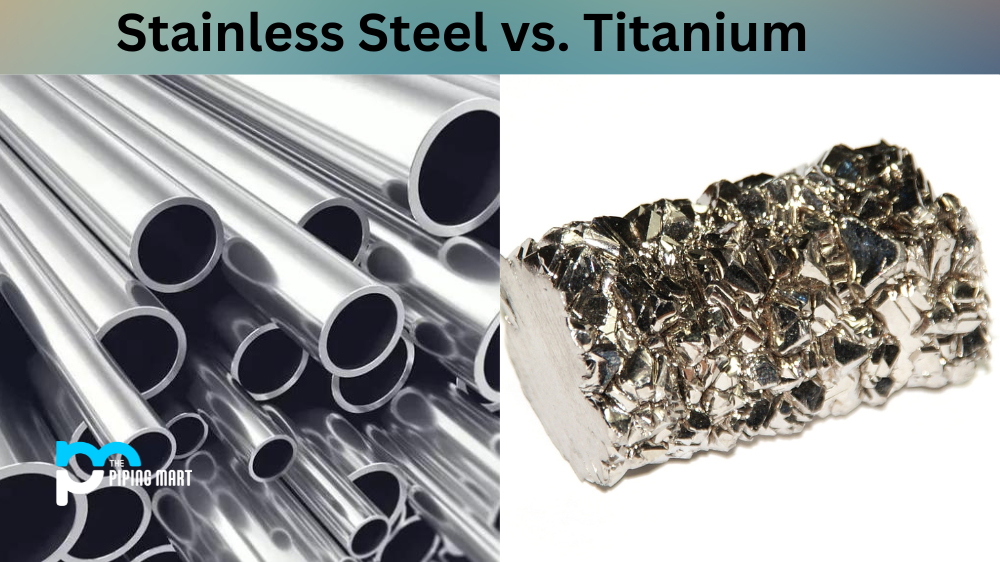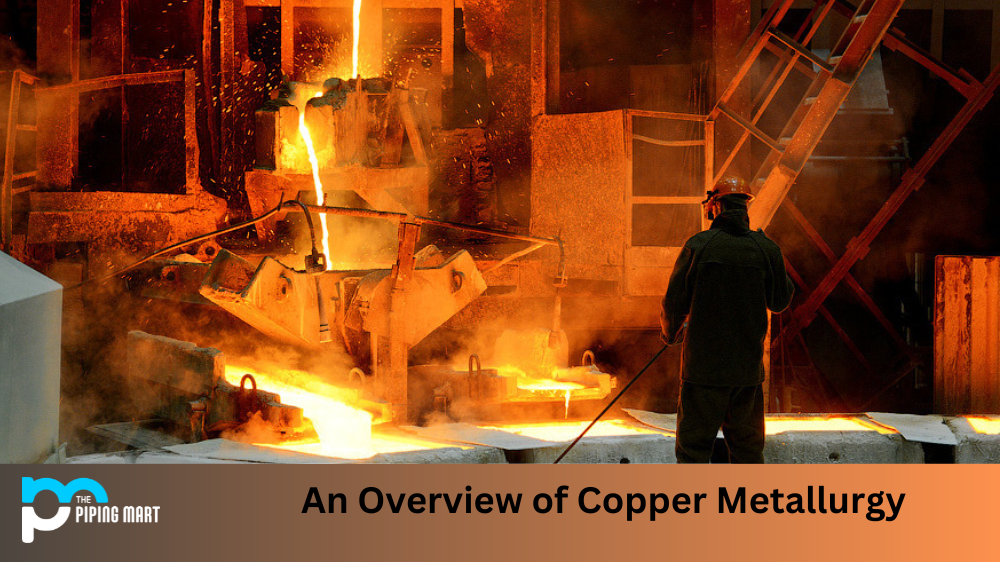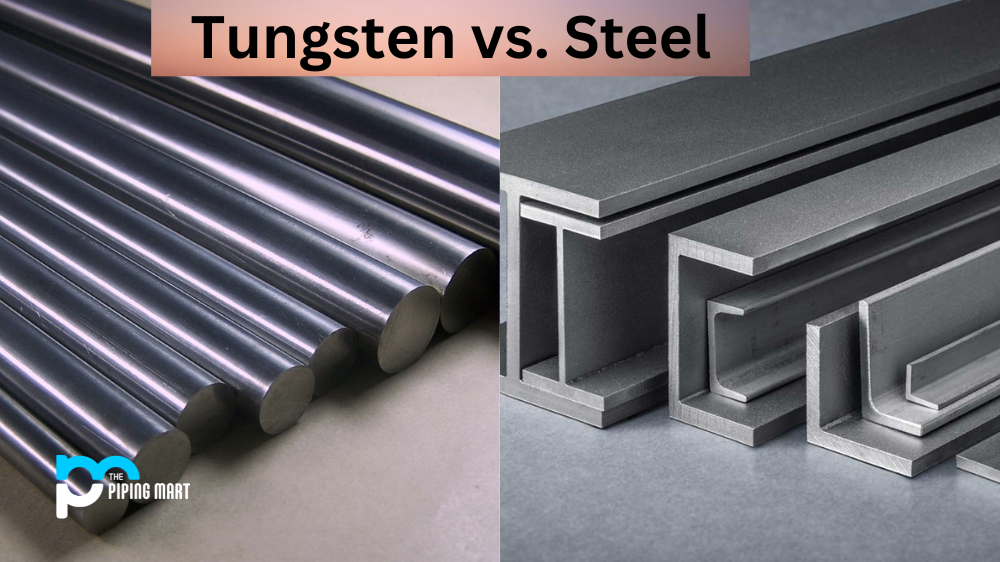You may have heard of stainless steel and titanium before, but do you know how they differ? With so many different metals out there, it can be difficult to keep them straight. This blog post will explain the differences between stainless steel and titanium so that you can make an informed decision on which one is right for your needs.
What is Stainless Steel?
Stainless steel is an alloy of iron, chromium, and other metals. It is highly resistant to corrosion and has a high strength-to-weight ratio. It is also relatively inexpensive and widely available, making it a popular choice for many applications, such as kitchen sinks, tools, and construction materials. Stainless steel also has a relatively low thermal conductivity, meaning that it does not absorb or retain heat well.
What is Titanium?
Titanium is a metal with a high strength-to-weight ratio that is resistant to corrosion in seawater and chlorine environments. It has excellent mechanical properties at both low and high temperatures and has good electrical conductivity. Titanium is more expensive than stainless steel but lighter in weight – making it ideal for aerospace applications where weight savings are important. It also has a good thermal conductivity which makes it suitable for use in heat exchangers or cryogenic tanks.
Properties of stainless steel
Stainless steel is widely popular for its corrosion resistance and durability. It is renowned for its exceptional strength and low maintenance requirements, making it a great choice for many industrial applications.
Corrosion-resistant
One of the most important properties of stainless steel is its corrosion resistance. This means that it is resistant to rust and other forms of corrosion. Stainless steel is able to resist corrosion because it contains chromium. When exposed to oxygen, chromium forms a thin layer of chromium oxide on the surface of the steel, which prevents further oxidation from taking place.
Durable
Another important property of stainless steel is its durability. This means that it is able to withstand a great deal of wear and tear without being damaged. Stainless steel is often used in applications where it will be subject to high levels of stress, such as in automotive and aerospace engineering.
Low Maintenance
Another advantage of stainless steel is that it requires very little maintenance. Once it has been installed, it does not need to be cleaned or sealed like other materials. This makes it ideal for use in areas where cleaning would be difficult or impractical, such as in food processing plants.
Recyclable
Another benefit of stainless steel is that it is 100% recyclable. This means that it can be reused over and over again without losing any of its properties. Stainless steel is often used in applications where sustainability is important, such as in architecture and construction.
Versatile
Another advantage of stainless steel is its versatility. This means that it can be used in a wide variety of applications, both decorative and functional. Stainless steel is often used in kitchenware, as well as in outdoor furniture and sculptures.
Properties of titanium
Stainless steel tends to be cheaper and more widely available in various grades. Titanium is also known for its exceptional strength, but it has a higher tensile strength than stainless steel, so it may be the better option for certain applications.
- Titanium is a strong, lightweight metal.
- Titanium is corrosion-resistant and does not tarnish.
- Titanium is non-toxic and hypoallergenic.
- Titanium is biocompatible and can be used in medical implants.
- Titanium has a high melting point and is resistant to high temperatures.
Difference Between Stainless Steel And Titanium
Stainless steel and titanium have become increasingly popular materials to use for a variety of manufacturing projects. Although both metals provide an array of benefits, it is important to understand the differences between stainless steel and titanium. Stainless steel has a high resistance to rust and corrosion, making it a great choice for projects that will be placed in an outdoor environment or exposed to moisture. Titanium, while less resistant to corrosion, is known for its strength and is often used in demanding applications such as jet engines or medical implants. Both metals are durable, long-lasting options and can contribute to a successful project outcome with their unique qualities.
Composition
One of the primary differences between stainless steel and titanium is their composition. Stainless steel is an alloy of iron, chromium, and carbon, while titanium is a metal that contains iron and oxygen.
Strength
Another difference between these two materials is their strength. Titanium is much stronger than stainless steel, making it ideal for applications where strength is important, such as in aircraft construction. Stainless steel, on the other hand, is more resistant to corrosion than titanium and is thus often used in food processing and medical equipment.
Cost
Titanium is also much more expensive than stainless steel due to its rarity and the fact that it is more difficult to extract from the earth. Titanium is also difficult to work with, which adds to its cost.
Uses
Due to its strength and resistance to corrosion, titanium is often used in aircraft construction and other high-stress applications. Stainless steel, on the other hand, is commonly used in food processing and medical equipment due to its resistance to corrosion.
Weight
Titanium is much lighter than stainless steel, making it ideal for applications where weight is a concern, such as in aircraft construction.
Conclusion:
Stainless steel and titanium are two very different materials with their own unique strengths and weaknesses. If you need something that can withstand harsh environmental conditions such as saltwater or chlorine, then titanium would be the better choice due to its superior corrosion resistance capabilities. On the other hand, if cost savings are more important, then stainless steel may be the way to go since it is less expensive than titanium but still offers a good strength-to-weight ratio. In the end, choosing between these two metals will depend on your specific needs, so make sure you take into consideration all factors before making a decision.
Compared to titanium, stainless steel tends to be cheaper and more widely available in various grades. Titanium is also known for its exceptional strength, but it has a higher tensile strength than stainless steel, so it may be the better option for certain applications. Furthermore, compared to stainless steel, titanium has superior resistance to heat and fatigue, so it’s an ideal material for use in environments where those properties are important. Both stainless steel and titanium have their advantages and limitations; choosing the right material mostly depends on which properties are most important in the intended application.

Abhishek is a seasoned blogger and industry expert, sharing his insights and knowledge on various topics. With his research, Abhishek offers valuable insights and tips for professionals and enthusiasts. Follow him for expert advice on the latest trends and developments in the metal industry.




